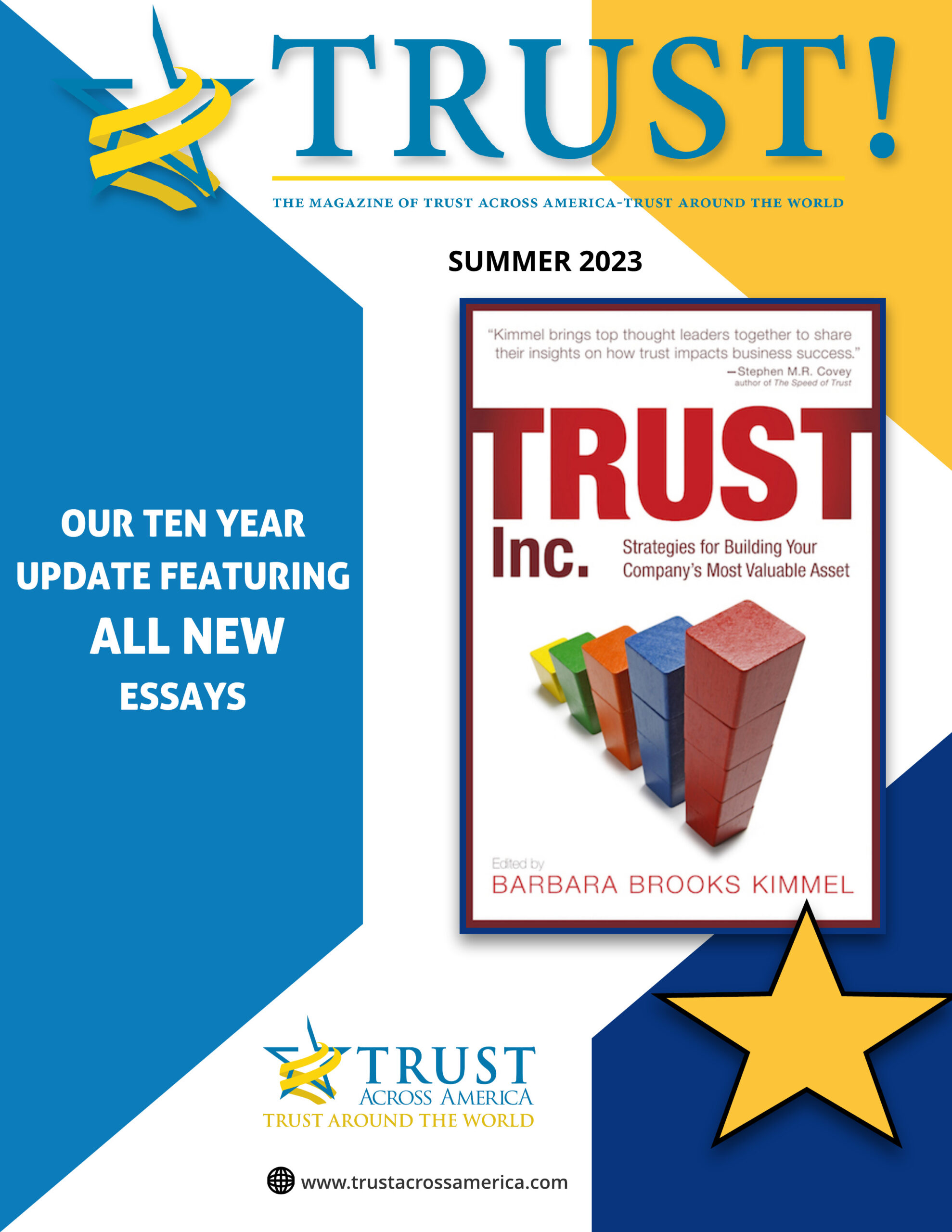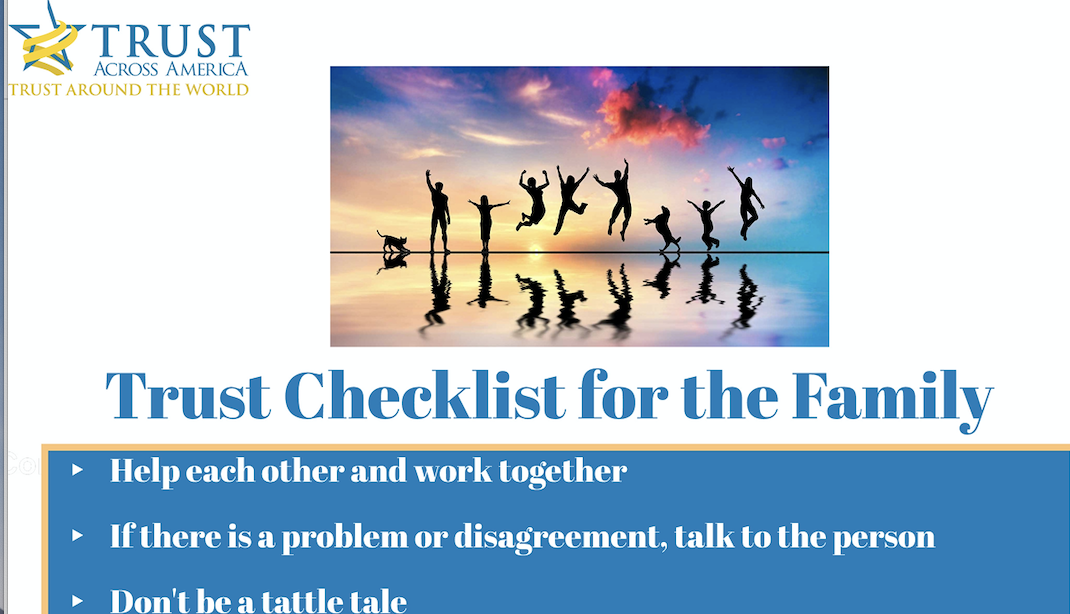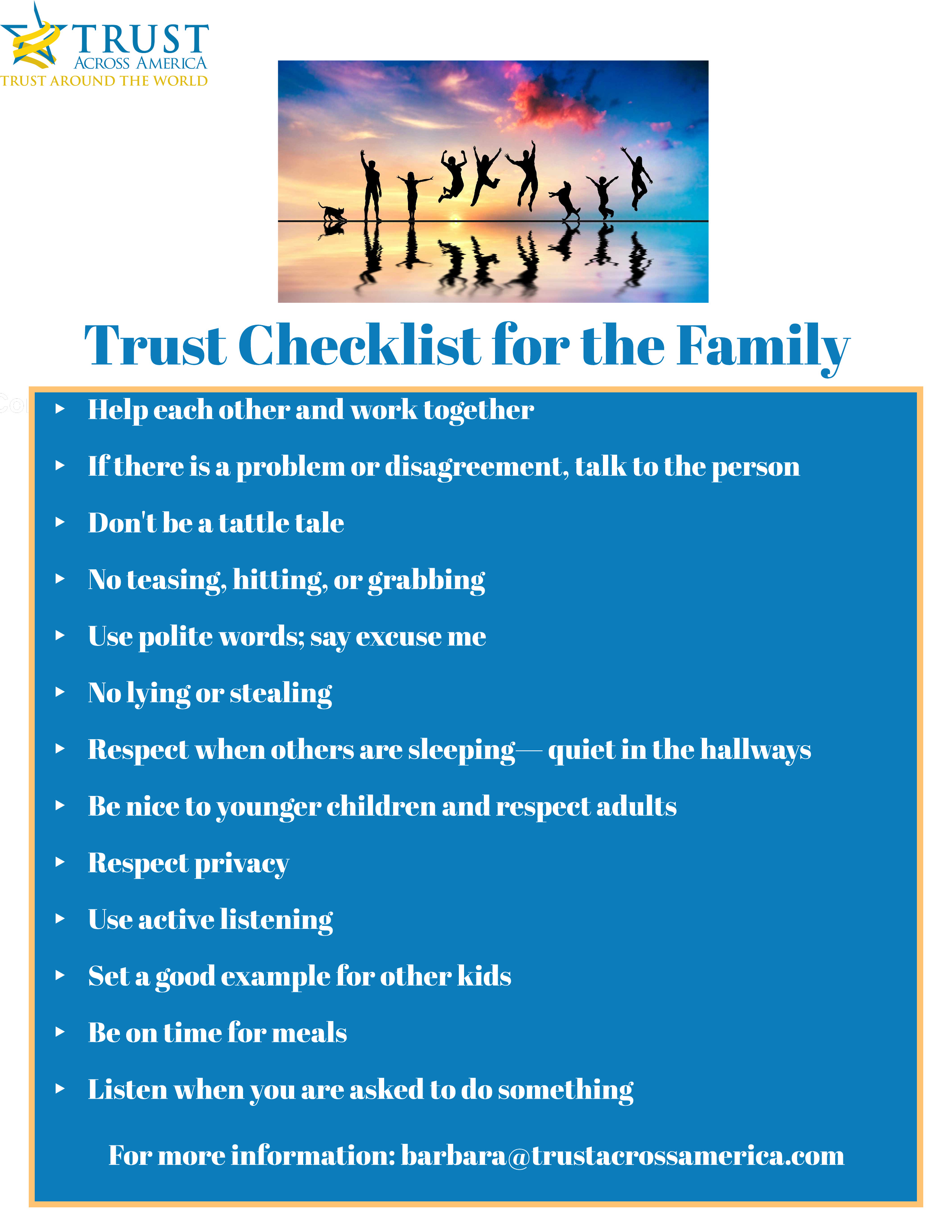FROM THE SUMMER ISSUE OF TRUST! MAGAZINE trustacrossamerica.com/magazine.shtml

Last week we published the summer issue of TRUST! Magazine. It includes 14 essays on our current ” state of trust.” These are some thoughts from the authors.
Trust in Turbulent Times: Interestingly, the etymology of “trust” is rooted in old Norse and English words meaning “strength” or “to make safe and strong.” In times like these, we crave leaders who will keep us safe and make us strong. Bart Alexander
The Formula for Building Trust: If it feels like your world isn’t going ‘round right now, or it’s going slower than you’d like, I recommend looking at trust first. The reality is, that low trust is almost always the root of the problem — or the most impeding barrier to the solution. Stephen M.R. Covey
Trust & Commerce: Trustworthiness is a vital component of every corporate interaction. It is the lubrication of commerce. Without trust in the organization, the company will ultimately cease functioning effectively or efficiently. Dr. James Gregory
The Trust Landscape: Couple decreasing trust with what we know about what we do when we distrust others and we have the makings of a slow-moving disaster. Unless we start turning this ship around we will see diminishing cooperation with increasing polarization, more balkanization in politics and society, less willingness to talk things out as people pull back from those they distrust. Charles Feltman
The Business Case for Trust: Contrary to what many executives are lead to believe, trust is not a “soft” skill. In fact in today’s challenging business environment it may mean the difference between survival and failure. Barbara Brooks Kimmel
The Margin of Trust: America’s corporate governance systems also make it difficult for boards to set the tone of a trust-based corporate culture. In the name of “accountability,” the system has veered from principles and tailored approaches towards mandatory rules and standardized practices for all. Lawrence A. Cunningham
Risk & Trust: Things go wrong when institutional trust is based on rules intended to rein in personal freedom and autonomy, implying that forced compliance creates more institutional trust than the personal trust it displaces. This way of thinking usually doesn’t end well. Charles H. Green
Trust & Governance: The smooth functioning of an organization therefore relies on an assumption of regularity. That, in turn, relies on two “trust” factors. First, that the people involved can trust each other and, second, that the corporate governance system itself is trustworthy. Jon Lukomnik & Rick Funston
Ethical Leadership & Trust: Most core values are a set of ideas thought up on a management golf outing, brought in on the back of a clubhouse napkin, then printed and posted without another word being spoken. The values and ideals of a business are what employees and others bring to work every day. James Lukaszewski
Sustainability Reporting & Trust: If trust is the purpose, then what you intend to do is as relevant as what you have done. Publicly committing to multi-year targets is a must for credible sustainability reporting. Elaine Cohen
Trust in Healthcare: Lack of trust creates a situation that creates the propensity to misinformation. At the same time, misinformation can create a negative trust reset. Jan Berger
Technology & Trust: As of November 2022, we have over 8 billion people sharing our precious planet earth. It makes sense to continue debating and researching trust between humans both individually and organizationally. At the same time, we urgently need to focus on the trustworthiness of technology. Our very survival as a species may depend on it. Helen Gould
Trust in Media: Ultimately what’s needed is changing the culture of how news is produced and what journalists are expected to do on a regular basis. We are talking about updating a system that, when you look at the format and expectations, hasn’t evolved since it started. Lynn Walsh
Trusting Artificial Intelligence: While Chat GPT may have the potential to revolutionize industries, the response to my original question reads like a primer on trust research with little to no information on trust in practice. Barbara Brooks Kimmel



Recent Comments